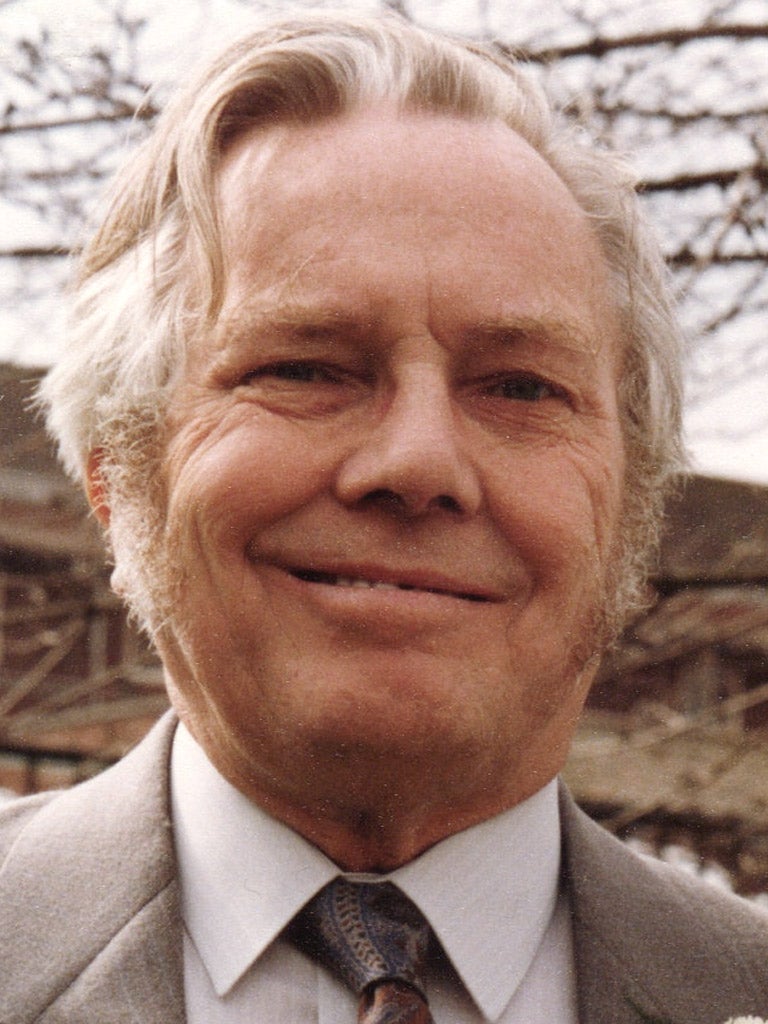Jack Hart: Trade unionist who took on the Tory government over the ban on unions at GCHQ

Jack Hart, a leading signals specialist, was an unlikely trade union activist, but on 25 January 1984, Hart, then chair of the committee representing all civil service trade union branches at GCHQ, was summoned to a meeting to be told that the Prime Minister, Margaret Thatcher, had decided to ban all unions at the government's secret listening centre in Cheltenham, and at other listening posts. Workers had a choice of leaving their unions or being dismissed. Those who gave up their membership were to receive £1,000.
Thatcher's decision, believed to have been taken under pressure from the Americans following a civil service dispute two years earlier, led to the long-running campaign organised by the civil service unions and the TUC, which united all members in anger at the accusation that people belonging to unions could not be relied upon to be loyal to their own country. Len Murray, then General Secretary of the TUC, waded into negotiations alongside civil service unions, making a deal with the Cabinet Secretary Robert Armstrong which allowed members to keep their cards, in exchange for the unions agreeing not to interfere with GCHQ. Thatcher, believing they faced a conflict of loyalty, tore up the agreement.
Hart was appalled at the ultimatum, and along with other workers at GCHQ deeply resented the inference that they had a conflict of interest. Senior managers had outlined the important work carried out by the workers, including union members, during the Falklands War; to make matters worse, the workers, many of them long-time signals operators, had never told their families what their jobs were.
Des Hart, Jack's son, recalled: "We knew he wasn't in the forces. I had a vague idea, I just knew he had a job, but we never discussed it, and I was told if asked to say he was a civil servant. Close family friends didn't know about it until Geoffrey Howe stood up in the House of Commons announcing details of the ban and giving details of what the people working at Cheltenham did."
Hart, then in his late fifties and heading towards retirement, found himself locked into a battle to get the ban withdrawn. Later, following his early retirement, he continued with the fight, becoming secretary of GCHQ Trade Unions, the committee set up to represent union members. The campaign was to last for 13 years; 14 members were to be sacked five years later.
A quiet, steely, cricket-loving, more used to settling disputes over a glass of beer, Hart was quick to declare his feelings: the first edition of the campaign's publication Warning Signal carried the headline "Jack's not signing", as he outlined his reasons for not accepting the government's £1,000 offer.
Accompanied by his wife Iris, Hart threw himself into the campaign and travelled around the country attending and speaking at meetings and conferences, constantly reminding people about the government's actions, becoming in many ways the public face of the campaign. In Easter 1992, he visited his son, who was then working in Cyprus. In the hopes of a Labour victory he was carrying a suitcase full of union recruitment forms to be handed out to those working at the local listening post. Des Hart said: "It was the fact that he had been on the inside of the wire for over 30 years, and the one thing that you didn't do was question the loyalty of the staff. He was angry at Thatcher's arrogance in accusing them of treachery for exerting the right that they were defending, that of democracy."
Hart was born in Rainham, Essex and educated at the Royal Liberty School in Gidea Park. He was called up in 1945, joining the Royal Corps of Signals, and was posted to Ceylon, where he trained as a wireless operator who would keep in contact with agents who were to be dropped into Japanese held Burma. He remained in the Far East until 1947, when he returned to England and was recruited to work at- GCHQ which had taken over the top secret role of eavesdropping, previously carried out at Bletchley Park during wartime. He took a crash course in Russian and was posted to Cyprus and Hong Kong as a "listener", scanning the airwaves, before returning to GCHQ's outstation in Taunton.
Brendan Barber, former General Secretary of the Trades Union Congress, said: "Of all the 1980s government attacks on trade unions, the GCHQ ban was the most spiteful. Jack Hart embodied the values of honesty, decency and patriotism that characterised the campaign for the restoration of rights and that kept the GCHQ trade union cause in the public eye right through to the time that the rights were restored as one of the first acts of the incoming Labour Government in 1997."
Indeed, within hours of being elected the new government restored trade union rights at GCHQ. "It was fantastic," Des Hart recalled. "My father went to the rally and saw the sacked men march back into GCHQ. He was ecstatic – it had all been worth it."
Peta Steel
Jack Hart, radio operator and trade unionist: born Rainham, Essex 18 February 1926; married 1952 Iris Keating (died 2009; two children); died Taunton 27 November 2012.
Subscribe to Independent Premium to bookmark this article
Want to bookmark your favourite articles and stories to read or reference later? Start your Independent Premium subscription today.

Join our commenting forum
Join thought-provoking conversations, follow other Independent readers and see their replies